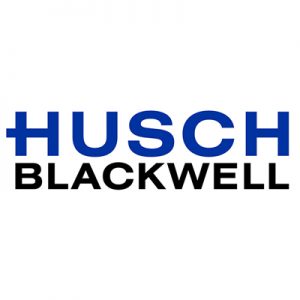The use of LIBOR is drawing to an end. For decades, financial institutions have used LIBOR (the London Interbank Offered Rate) as the prevailing reference rate for determining interest rates in commercial and financial transactions. As a response to the manipulation of LIBOR almost a decade ago, the United Kingdom’s Financial Conduct Authority (the FCA) announced in 2017 it did not expect LIBOR to be an acceptable benchmark for floating interest rates beyond 2021.
Although the LIBOR transition is still in process, there are some settled ways to deal with the transition and trends in the replacement rate for LIBOR. Preparing now for this transition is important.
I. Current State of LIBOR
LIBOR is calculated from estimates submitted by a panel of leading London banks. Today, commercial contracts totaling nearly $200 trillion use LIBOR as a “benchmark.”
On March 5, 2021, Intercontinental Exchange (ICE) and the FCA confirmed that LIBOR will phase out by June 30, 2023, and one-week and two-month LIBOR will cease being published by Dec. 31, 2021. On March 9, 2021, the Alternative Reference Rate Committee (the ARRC) confirmed that ICE’s announcement of a definitive cessation date for LIBOR tenors constituted a “Benchmark Transition Event,” which began the process of switching from LIBOR. However, this “Benchmark Transition Event” does not require an immediate transition.
The fallback language that only addresses LIBOR’s temporary unavailability may not suffice because LIBOR will be permanently discontinued.
II. How to Transition to a New Reference Rate
New contracts executed before Dec. 31, 2021, should utilize a non-LIBOR reference rate or have robust fallback language, including a clearly defined alternative reference rate to replace LIBOR. The ARRC, a group of private-market participants convened by the Federal Reserve, has proposed using the Secured Overnight Financing Rate (SOFR) to replace LIBOR.
SOFR is a risk-free, daily, overnight rate based on actual interbank transactions with daily volumes approaching $1 trillion. SOFR is calculated daily and can be simple (Daily Simple SOFR) or compounded (Daily Compounded SOFR). Because LIBOR is a credit-sensitive rate and SOFR is a risk-free rate, there are established spread adjustments to SOFR to align the rate with LIBOR. SOFR can also be calculated for forward-looking tenors and published by an authorized benchmark administrator. Such forward-looking SOFR is called Term SOFR.
Daily Simple SOFR and Daily Compounded SOFR are similar, so the ARRC recommends using Daily Simple SOFR to keep calculations simpler. We have seen at least one market participant in a new contract use Daily Simple SOFR as the reference rate with fallback language to Term SOFR once it is established or a different rate that becomes more appropriate. Some lenders have also discussed using other reference rates, which may be credit-sensitive rates, such as a rate called AMERIBOR. To date, comparable credit-sensitive rates do not appear to have much of a following, and we have seen only isolated instances where such reference rates have been used.
III. How Can Lenders Protect Themselves?
If you use third-party vendors to produce loan documents or maintain any of your operations systems, you should contact them regarding steps to transition away from LIBOR and system updates. ARRC has released best practices for third-party technology and operations vendors relevant to the transition, including the systems for booking, valuation and accounting. As of now, the vendors should have completed almost all remaining enhancements to their products that are necessary to support SOFR or should have a good understanding of the key enhancements needed. Community banks should evaluate how their current systems, pricing, and operational aspects of using the third-party vendors will change.
Community banks that do not use third-party vendors should identify the loan documents which use LIBOR. Lenders should consider approaching borrowers to propose amendments that provide clear language that addresses LIBOR transition. Banks should also develop strategies for consumer protection risks and reach out to their customers about transition plans. The Federal Financial Institutions Examination Council issued a Joint Statement on Managing the LIBOR Transition, which recommends that transition plans identify affected consumer loan contracts, highlight risk mitigation efforts, and address the development of clear and timely consumer disclosures regarding changes in terms.
Lenders must address the legal and operational risks they might have with the LIBOR transition. Banks should examine their existing loan documents to quantify their LIBOR exposure and understand how fallback reference rates will be determined. If no methodology is included, one will need to be added to the loan documents. The fallback language that only addresses LIBOR’s temporary unavailability may not suffice because LIBOR will be permanently discontinued. Moreover, if existing loan documents fall back to the “prime rate,” it still might not be an ideal long-term reference rate or an acceptable replacement for borrowers.
There is still a lot of uncertainty on what the LIBOR transition will bring. Although this transition may be disruptive in the short term, moving to SOFR or another similar reference rate should further stabilize the financial markets over the long term. By taking steps to identify and mitigate risks early, community banks will be better prepared to address potential risks that may arise from the LIBOR transition.



Christopher Rockers is a Kansas City-based partner with the law firm Husch Blackwell LLP and co-leads the firm’s LIBOR team.
Nicholas Kenney and Ani Kaufmann Mamisashvili are attorneys in Husch Blackwell LLP’s Kansas City office and are members of the firm’s Banking & Finance team.








